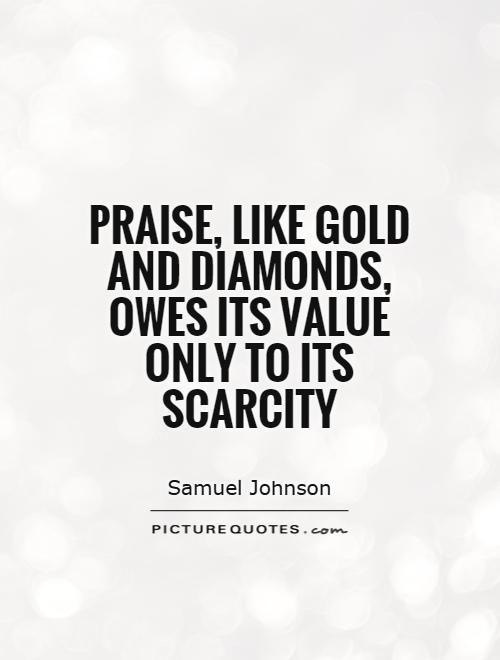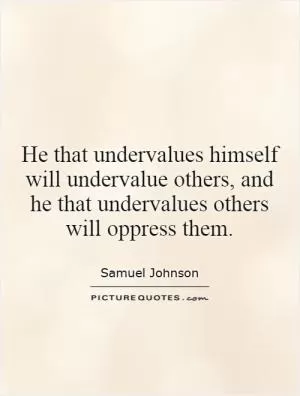Praise, like gold and diamonds, owes its value only to its scarcity

Praise, like gold and diamonds, owes its value only to its scarcity
Samuel Johnson, the renowned English writer, once famously said, “Praise, like gold and diamonds, owes its value only to its scarcity.” This statement holds true in many aspects of life, especially when considering the context of Johnson’s own experiences and achievements.Johnson was a prolific writer and critic, known for his wit, intelligence, and sharp tongue. Despite his many accomplishments, he often struggled with self-doubt and feelings of inadequacy. In a society that thrived on flattery and empty praise, Johnson understood the true value of genuine and sincere commendation. He believed that praise should be earned through hard work, talent, and dedication, rather than simply given out freely.
In Johnson’s time, the literary world was filled with sycophants and opportunists who would shower writers with insincere compliments in the hopes of gaining favor or advancement. Johnson saw through this facade and recognized that true praise was rare and precious. He understood that genuine admiration and recognition could only come from those who truly understood and appreciated his work.
Johnson’s own struggles with self-esteem and self-worth only served to reinforce his belief in the value of scarce praise. He knew that empty flattery could never fill the void left by genuine appreciation and recognition. For Johnson, praise was not just a form of validation, but a reflection of one’s true worth and merit.
In today’s world, where social media and instant gratification have made praise and validation more accessible than ever, Johnson’s words ring truer than ever. In a sea of likes, shares, and comments, true praise is becoming increasingly rare and valuable. Those who are able to discern between genuine admiration and empty flattery are able to truly appreciate the worth of sincere praise.












 Friendship Quotes
Friendship Quotes Love Quotes
Love Quotes Life Quotes
Life Quotes Funny Quotes
Funny Quotes Motivational Quotes
Motivational Quotes Inspirational Quotes
Inspirational Quotes